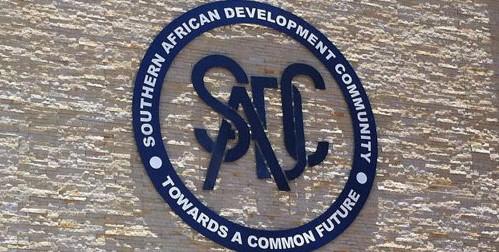News / National
Sadc ignores Mozambique civil unrest
21 Nov 2024 at 06:34hrs |
3 Views

The Southern African Development Community (SADC) held an extraordinary summit in Harare yesterday, where regional leaders largely overlooked the ongoing civil unrest in Mozambique, which has erupted following disputed election results. Despite rising tensions in Mozambique after the controversial victory of Frelimo's Daniel Chapo in the October presidential elections, the summit focused primarily on the ongoing civil conflict in the Democratic Republic of Congo (DRC).
In his opening remarks, SADC Executive Secretary Elias Magosi commended Mozambique, Botswana, and Mauritius for conducting "peaceful" elections, noting the busy election calendar across the region. However, he did not address the violent protests and clashes that have taken place in Mozambique following Chapo's contested win, which saw the incumbent Frelimo party claim over 71% of the vote.
Mozambique is currently grappling with widespread civil unrest, with reports indicating that at least 30 people have died in clashes between civilians and the military since the election results were announced. Opposition leader Venancio Mondlane, who was the runner-up in the presidential race, has called for continued nationwide protests, further fueling the volatile situation.
Despite this, the SADC summit chose to focus primarily on the conflict in the DRC, where over 20,000 people have been displaced, and hundreds of civilians have been killed since the violence erupted in 2021. According to the United Nations High Commissioner for Refugees (UNHCR), the situation in the DRC remains dire, and SADC leaders emphasized the importance of addressing security challenges in the region.
The summit saw the attendance of only four heads of state: outgoing Mozambican President Filipe Nyusi, newly-elected Botswana President Duma Gideon Boko, Madagascar President Andry Rajoelina, and DRC President Felix Tshisekedi. Other SADC countries were represented by ministers, as many heads of state were engaged in other international commitments. South African President Cyril Ramaphosa, who was absent from the summit, attended the G20 summit in Rio de Janeiro, Brazil, while Tanzanian President Samia Suluhu Hassan sent a representative from Zanzibar.
In his address, SADC Chairperson and Zimbabwean President Emmerson Mnangagwa emphasized the importance of peace and stability in the region, stressing that disruptions to peace and security threaten the region's socio-economic development. However, Mnangagwa made no mention of the violence in Mozambique, despite its prominent place in the headlines.
"While the SADC region remains peaceful and stable generally, we do have, unfortunately, some security challenges in some parts, which require our continued collective response to address," Magosi said. He also highlighted that political stability is essential for the region's integration and development.
Ambassador Victor Matemadanda, Zimbabwe's envoy to Mozambique, dismissed allegations that Zimbabweans had interfered in Mozambique's elections, calling them "fake" and asserting that the situation in Mozambique was peaceful. Matemadanda denied reports that Zimbabweans were involved in voting, suggesting that claims of demonstrations were exaggerated. He pointed to what he described as isolated incidents of looting rather than legitimate protests, further distancing Zimbabwe from the controversy.
The SADC summit concluded with discussions centered on the ongoing challenges in the DRC, where political instability continues to exacerbate the humanitarian crisis. Although Mozambique's unrest remains unresolved, the regional body has yet to take significant action on the matter, leaving many questioning the organization's commitment to addressing the crisis within its own member states.
In his opening remarks, SADC Executive Secretary Elias Magosi commended Mozambique, Botswana, and Mauritius for conducting "peaceful" elections, noting the busy election calendar across the region. However, he did not address the violent protests and clashes that have taken place in Mozambique following Chapo's contested win, which saw the incumbent Frelimo party claim over 71% of the vote.
Mozambique is currently grappling with widespread civil unrest, with reports indicating that at least 30 people have died in clashes between civilians and the military since the election results were announced. Opposition leader Venancio Mondlane, who was the runner-up in the presidential race, has called for continued nationwide protests, further fueling the volatile situation.
Despite this, the SADC summit chose to focus primarily on the conflict in the DRC, where over 20,000 people have been displaced, and hundreds of civilians have been killed since the violence erupted in 2021. According to the United Nations High Commissioner for Refugees (UNHCR), the situation in the DRC remains dire, and SADC leaders emphasized the importance of addressing security challenges in the region.
In his address, SADC Chairperson and Zimbabwean President Emmerson Mnangagwa emphasized the importance of peace and stability in the region, stressing that disruptions to peace and security threaten the region's socio-economic development. However, Mnangagwa made no mention of the violence in Mozambique, despite its prominent place in the headlines.
"While the SADC region remains peaceful and stable generally, we do have, unfortunately, some security challenges in some parts, which require our continued collective response to address," Magosi said. He also highlighted that political stability is essential for the region's integration and development.
Ambassador Victor Matemadanda, Zimbabwe's envoy to Mozambique, dismissed allegations that Zimbabweans had interfered in Mozambique's elections, calling them "fake" and asserting that the situation in Mozambique was peaceful. Matemadanda denied reports that Zimbabweans were involved in voting, suggesting that claims of demonstrations were exaggerated. He pointed to what he described as isolated incidents of looting rather than legitimate protests, further distancing Zimbabwe from the controversy.
The SADC summit concluded with discussions centered on the ongoing challenges in the DRC, where political instability continues to exacerbate the humanitarian crisis. Although Mozambique's unrest remains unresolved, the regional body has yet to take significant action on the matter, leaving many questioning the organization's commitment to addressing the crisis within its own member states.
Source - newsday
Join the discussion
Loading comments…










































